La freccia e il cerchio
anno 2, numero 2, 2011
pp. 86-88
Rocco Ronchi
I do not remember. Philosophy and oblivion
The expression “I do not remember” has always been a challenging enigma to the philosopher. It establishes both a structural limit and an active relation. On the one hand it marks my exclusion from the truth since he who “does not remember” does not know, on the other hand it reveals my oblique relation with the absent truth, as he who cannot recall, in the first person singular present indicative, is never the less on the tracks of truth, truth that he does not possess. He who can not remember is actually trying to recall1. Oblivion and the effort to recall are two faces of the same coin. There is no oblivion without the search for what is lost, precisely as the wound healing process is one and the same thing as the wound itself.
“I do not remember” always involves the act of seeking, even in the surrender, when we recognize the impossibility of remembering. In this case the unknown perpetuates itself as unknown, as virtuality, and is experienced as an insatiable “hunger” for determination.
Philosophy entails a search for, a tension towards, the truth. The practice of philosophy relies on a double condition: on the one hand the truth has to manifest itself, “somehow” it has to appear. On the other hand, our distance from the truth is not a sign of exclusion, but rather the sign of our indirect participation in it. Such a distance-relation is exactly what we experience in the oblivion ‘in the first person’. Only by experiencing this kind of oblivion do ‘we know that we know nothing’ and we can start to aspire to true knowledge. The consciousness of ignorance does not end in the mere fact of ignorance, but rather in the tension towards the absent knowledge. Similarly, the structure of oblivion is the possibility of a relation with what is absent, because of its absence. Even he who knows he knows nothing must “somehow” know what he does not know.
Oblivion entails intentionality; it is oblivion of something. It is consciousness of oblivion. This may strike one as paradoxical, since consciousness intentionally aims towards something which is not given in its actuality, i.e., is not2. From a strictly logical standpoint, such an oblivion is simply absurd, since it is taking the ‘path of not being’. How is it possible to intentionally aim at something which is not? ‘On the tip of the tongue’, in the temporary amnesia of the proper name, nothing is “given”! If I were asked to say what I see in the act of recalling, I would not be able to answer, I would experience the inadequacy of any possible linguistic description as well as the insurmountable transcendence of the perceived “thing”. I might say that I am experiencing some sort of phantasm of the thing, a larva waiting to materialise itself in a ‘body of flesh and blood’.
These phantasmic images are full of unexpected meanings and discomforting to a logical mind. Ultimately, what is on ‘the tip of the tongue”? What is the prime mover of my search?
When “I do not remember X”, I am intentionally aiming at something that is not (X), but never the less it orients, like the North Star, my search of what such ‘something’ is. In the emptiness of oblivion, I ask what is X? Is it B, C, D? No, they resemble X, they share some characteristics with it, but still they are not X. Instead, X is A. The judgement ‘X is A’ arrives only at the end of my research, as the dawn of knowledge where the intuitive evidence enlightens what I was absurdly assuming to be present in the absence of oblivion.
“I do not remember” means to aim towards a specific absence, towards some eidos X (X that will be A and will not be B, C, D…). The process is similar to what happens when we forget a proper name: the name is unknown and yet it is there “on the tip of the tongue”. Absence, qua intentional object, is not a vague nothing, but rather a determinate absence. The proper name I am looking for is not there, but the void left by its absence wields an incontrovertible selective power. Such a power is a negative method for excluding certain “candidates” coming out of the consciousness. In addition, this power is the reason why (unknown to me) those precise images, rather than others, are emerging. Like dreams, these images are uncanny visitors, yet they have a cause. Both Augustine and Freud analysed this paradoxical and unhemliche situation, referring precisely to the temporary amnesia of proper names.
[…]
